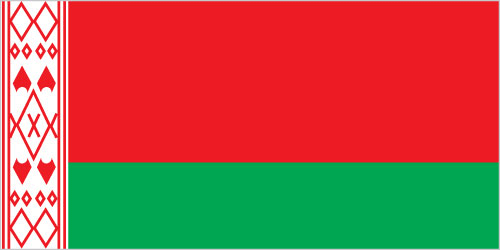Belarusian visa regulations change frequently, so check with your embassy first. The Belarusian US embassy website, at www.belarusembassy.org, stays pretty up to date.
Who needs one
All Western visitors need a visa, and arranging one before you arrive is essential. Point-of-entry visas are only issued at the Minsk-2 international airport, but you still need to get an invitation in advance. (People do it this way, usually without trouble, but if the authorities decide to deny your application, what then? Better to do it in advance.)
Citizens of 13 countries, including UK, Canada and South Africa, do not need an invitation to receive a tourist visa; they merely need to complete an application and submit a photo at a Belarusian embassy or consulate (visit www.belarusembassy.org for more details).
Applications
To get a visa, you will need a photograph, an invitation from a private person or a business, or a confirmation of reservation from a hotel, and your passport. There are three main types of visas: tourist, issued if you have a tourist invitation or hotel reservation voucher; visitor (guest), if your invitation comes from an individual; and business, if your invitation is from a business. There are also transit visas, if you are passing through and won’t be in the country for more than 48 hours. Visitor and tourist visas are issued for 30 days (tourist visas can be multi-entry); business visas are for 90 days and can also be multi-entry.
By far the simplest – although the most expensive – way to get a visa is to apply through a travel agency. Alternatively, you can take a faxed confirmation from your hotel to the nearest Belarusian embassy and apply for one yourself.
Tallinn, RÄ«ga and Vilnius have numerous travel agencies specialising in Belarusian visas. In Vilnius, the most convenient point to jump off, try Viliota (370 5-265 2238; www.viliota.lt, in Lithuanian; Basanaviciaus gatvÄ— 15), where you can get a visa hassle-free with a photo of yourself and between US$50 and US$100.
Getting an invitation from an individual can be a long, complex process. Your friend in Belarus needs a zaprashenne (official invitation) form from their local passport and visa office and should then send it to you. With this, you apply at the nearest Belarusian embassy.
Visa costs vary depending on the embassy you apply at and your citizenship. Americans pay more, but typically single-entry visas cost about US$50 for five working-days service and US$90 for next-day service; double-entry visas usually cost double that. Business visas are more expensive than tourist visas. Transit visas typically cost from US$20 to US$35.
Registration
If you are staying in the country for more than 72 hours, you must have your visa officially registered. Hotels do this automatically, sometimes for a small fee. They’ll give you small pieces of paper with stamps on them, which you keep to show to customs agents upon departure if asked. In theory you’ll be fined if you don’t provide proof of registration for every day of your stay; in practice, proof of one day is good enough.
If you’ve received a personal invitation, you’ll need to find the nearest passportno-vizovoye upravleniye (passport and visa department; PVU, formerly OVIR) or try to convince hotel staff to register your visa for the cost of one night’s stay. The PVU main office (017-231 9174; vulitsa Nezalezhnastsi 8) is in Minsk.
Transit visas
All persons passing through Belarusian territory are required to possess a transit visa, which can be obtained at any Belarusian consulate upon presentation of travel tickets clearly showing the final destination as being outside of Belarus. The possession of a valid Russian visa is not enough to serve as a transit visa. Transit visas are not available at the border.
